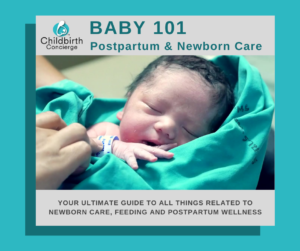
Peace of Mind in Pregnancy: A Reflection Guide for Expectant Parents
Peace of Mind in Pregnancy: A Reflection Guide for Expectant Parents
Pregnancy can bring a whirlwind of emotions, plans, and pressure. With so much information to navigate, it’s easy to feel like you’re losing touch with what really matters to you. That’s why taking a few moments to pause and reflect can be powerful.
At its core, peace of mind during pregnancy is about feeling grounded, informed, and supported — in ways that align with your unique values and needs. Below are a few simple but meaningful questions designed to help you reconnect with yourself and identify the support that will truly serve you best.
What does “peace of mind” look like to you right now?
Is it feeling informed and prepared? Having consistent support? Being able to slow down? Take a moment to define it in your own words.
What’s weighing on your mind the most?
From decisions about birth to outside life stressors, naming your top 1–2 concerns can help you begin to release them — or ask for the help you need.
What kind of support feels most helpful right now?
☑ Emotional reassurance
☑ Clear information
☑ Practical tools/resources
☑ Hands-on help
☑ Space to ask questions
☑ Other: ____________
How do you best receive new information or instructions?
Think about what helps things “click” for you. Written, verbal, visual, or hands-on?
What is your preferred way to receive communication?
☑ Text
☑ Email
☑ Phone
☑ In person
☑ Other: ____________
Are there any cultural values, personal preferences, or past experiences you’d like someone supporting you to know?
You deserve care that respects your full story. Anything you’d like to share can help create a more thoughtful experience.
What helps you feel most confident and cared for when working with a professional or service provider?
This could be tone, style of communication, consistency, listening, or other factors.
What typically causes you stress or overwhelm?
Identifying your stress triggers allows you (and others supporting you) to navigate them more gently.
What helps you regulate or come back to calm?
Knowing your own go-to strategies can empower your experience. For example Knowing what you can control
Is there anything else you’d like to share about how you’d like to be supported on this journey?
Whether it’s a specific fear, hope, or simple request — it matters.
This is your journey. Reflecting on these questions isn’t about having all the answers — it’s about staying connected to yourself in a season full of change.
Wherever you are in the process, we hope this gives you space to breathe, think, and feel more grounded in what matters most.
This reflection guide is inspired by the values behind The Peace of Mind Method™ — a supportive care model grounded in evidence, empathy, and empowerment.
Let’s talk about what peace of mind looks like for your journey. Lets Connect and start the conversation.
Spanning a 34-year career in the maternal health field, Kathy is an industry pioneer and the visionary behind Childbirth Concierge. She honors all journeys to parenthood and feeding, and is committed to ensuring that parents feel seen, heard and valued while in her care. As a mother of five herself, Kathy has considerable experience in preparing for the birth and care of newborns, and helps to empower parents by delivering peace of mind during what can at times be a challenging situation. A born educator, she is in her element teaching new parents and health professionals. She worked 14 years in Maternal Health at Winnie Palmer Hospital in Orlando and is a self-proclaimed “Birth JUNKIE”.









